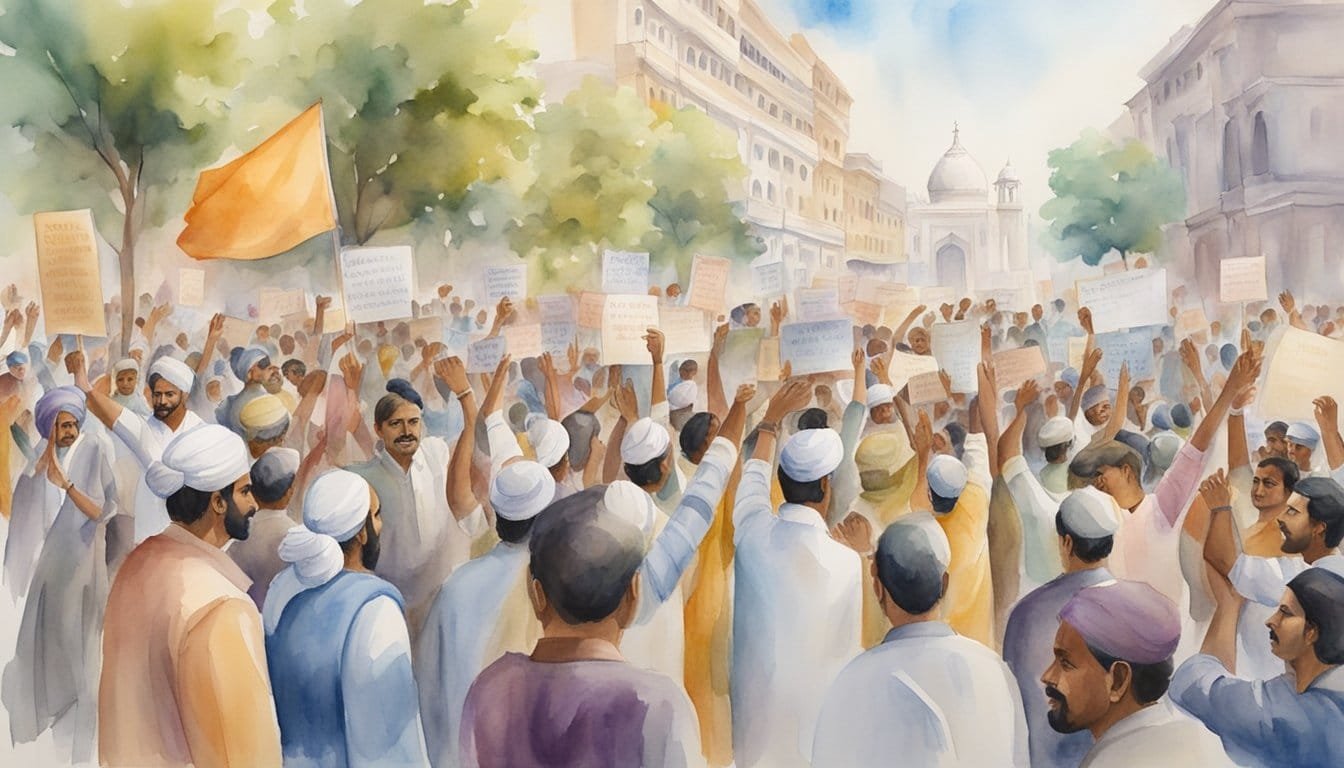History and Demographics of Indian Christians
Christianity has a significant yet complex history in India, underscored by its ancient origins and considerable variance across regions. This section will outline its early beginnings, notable growth phases, and the various Christian communities residing in India as reflected by census data.
Origins and Early History
Christianity in India is often traced back to the arrival of Thomas the Apostle in AD 52, when he is believed to have landed in Kerala, introducing the faith to the Indian subcontinent. This event marked the foundation of what are known today as the Thomas Christians or Syrian Christians, a community that has maintained its unique identity across the centuries.
Growth and Spread in India
The arrival of the Portuguese in the late 15th century, particularly explorer Vasco da Gama on the Malabar Coast, marked a new era in the spread of Christianity. Goa became a central hub for the Portuguese and later on, the work of Catholic missionaries like St. Francis Xavier greatly expanded Christian influence. The 18th century saw the genesis of the Protestant movement in India, with figures such as William Carey who initiated the Serampore Mission, further diversifying India’s Christian demographic.
Census Data and Surveys
According to the national census of 2011, Christians in India numbered over 27 million, around 2.3% of the total population. A closer analysis by the Pew Research Center illustrates that Christian populations mainly concentrate in Southern India, especially in Kerala, the Konkan Coast, and among tribal areas in Eastern and Northern India. This distribution underscores the diverse and localized nature of Christianity within the Indian context.
Contemporary Issues and Society

Christians in India, a diverse and vibrant community, are navigating through a spectrum of challenges that shape their role and identity in society. These range from political legalities to socio-religious dynamics with other communities.
Political Challenges and Laws
The introduction of anti-conversion laws in several Indian states, including Uttar Pradesh and Karnataka, has significantly affected Christians. These Freedom of Religion Acts are intended to prevent religious conversions that are allegedly forced or achieved through allurement. However, the Evangelical Fellowship of India (EFI) reports that such laws are often used to persecute minority Christian communities. The Bharatiya Janata Party (BJP), India’s ruling political entity, has been linked to the promotion and enactment of these legislations.
Religious Tensions and Violence
Tensions between Christians and other religious groups, predominantly Hindus but also including Muslims and other communities, have led to incidents of violence and attacks on Christians. Organizations like Open Doors have documented these attacks, which are often sparked by accusations of forced conversions, commonly referred to as ‘love jihad’, especially involving Dalits and other marginalized groups such as Scheduled Castes and Scheduled Tribes.
Intercommunity Relations
Despite the rise in religious tensions and societal divisiveness, not all interreligious interactions are adversarial. In regions like South India and the Northeast, where Christians form a more substantial part of the population, relations between different faith groups can be more cooperative and harmonious. There’s a history of interreligious marriage and cultural exchange among Hindus, Muslims, Sikhs, Jains, Buddhists, and Christians, which, despite present challenges, continues in many communities.
Christian Contribution to Education and Culture
The Christian community has made substantial contributions to Indian society, particularly in the fields of education and culture. Christian missionaries and institutions have been instrumental in the establishment of schools, colleges, and universities, especially in regions that lacked educational infrastructure. These establishments have played a pivotal role in literacy and have been a part of India’s architectural, literature, and cultural tapestry.

